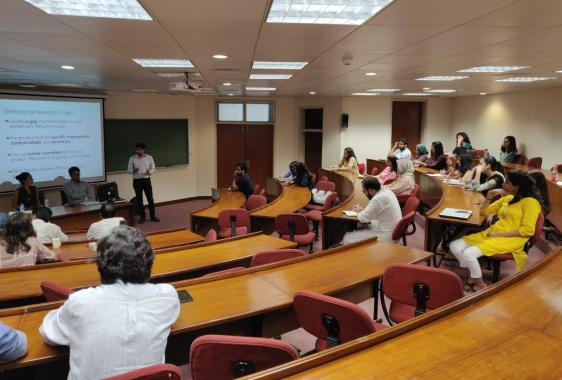
The Gurmani Centre of Languages and Literature held a one-day workshop on August 3 designed to assist Pakistani students applying to humanities graduate schools in the United States and Canada.
Led and organised by Dr. Maryam Wasif Khan (LUMS), Dr. Jennifer Dubrow (University of Washington), Zain R. Mian (University of Pennsylvania), and Nabeel Jafri (University of Toronto), the workshop consisted of two sessions. In the first part, all four contributors presented their own perspective on the graduate school application process. Dr. Khan shared her insights from her extensive work with prospective graduate applications in the humanities and focused on the process of selecting a university and a programme. Mr. Mian presented on the intricacies of the personal statement while Mr. Jafri commented on the writing sample. And finally, Dr. Dubrow enlightened participants from the perspective of Graduate School Application Committees.
In the second part of the session, participants got the opportunity to work one on one on their statements and writing samples with the panelists. In addition to the workshop, this event also inaugurated an online portal where students can not only access guidance on specific parts of the application but also view successful samples from previous years. Available freely, this portal serves as a useful repository of information for prospective students both within and outside LUMS. The panelists pointed the various mistakes, pitfalls, and acts of negligence which lead to rejections from graduate schools. These include something as simple as applying to a department that works on Asian Languages and Literature with a project that works solely with English texts to something as specific as not citing a key academic intervention made in the discipline over the past few years.
Perhaps most importantly, the speakers urged students to fully understand the practicalities of the admissions process, such as the importance of emailing professors in advance, finding the right fit, soliciting good recommendations, GRE scores, and that it is not expected of the students to have actually worked on the project they initially propose. After the workshop, rather than a seamless systematic process, the graduate application emerged as dependent on some level of arbitrariness and luck that can nevertheless be prepared for. Overall, the workshop was a well-designed and well-executed attempt to make the unnecessarily obscure process slightly less confusing.








